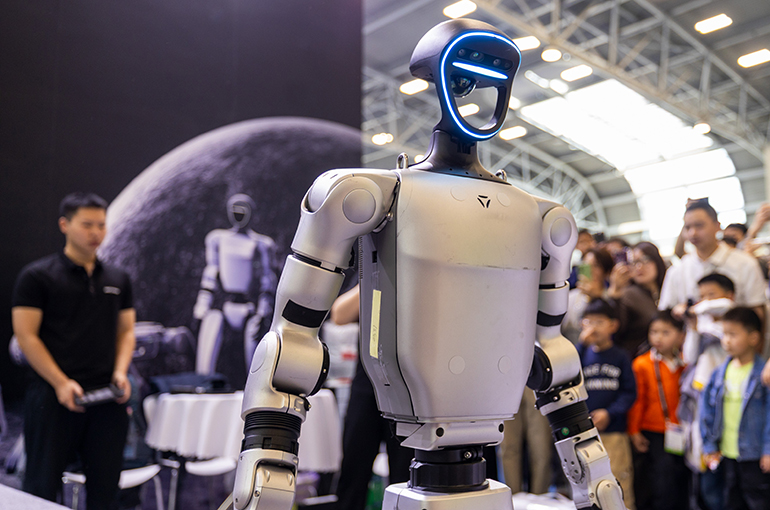Select Language:
A Chinese robotics startup specializing in humanoid robots has announced the open-sourcing of its innovative world model-action architecture to encourage the development of a broader developer community.
The company, based in Hangzhou, recently released the source code for UnifoLM-WMA-0, a component of its series of Large Models designed to unify diverse robotic applications across various tasks and environments.
Their flagship humanoid robot, standing at 1.3 meters and introduced a year earlier, now incorporates UnifoLM-WMA-0, integrating vision, language, and action functionalities.
The company explained that this initiative focuses on creating a “world model capable of understanding the physical laws of robot-environment interaction.” The system includes a simulation engine and a policy enhancement module, allowing robots to forecast and adapt to upcoming environmental changes. Demonstrations showcase the model generating video predictions of movements, which are then executed by robotic limbs.
An expert from a leading university’s innovation lab described the update as an improvement over earlier open-source models. The company has previously shared several tools with the development community.
The new framework allows robots to predict environmental changes in mere milliseconds. For instance, if a robot detects a pothole ahead, it can proactively modify its gait to avoid tripping or falling.
A representative from another robotics firm, involved in fundraising efforts, highlighted that since a significant portion of the company’s sales come from the education sector, open-sourcing plays a vital role in expanding its ecosystem. “Building a strong developer community is essential for the company’s core business model,” they said.
According to company data, about 80% of the company’s quadruped robots, as well as a similar share of its humanoid models, are used in research, education, and consumer markets.
The executive added, “The industry is competing to establish dominance through strategies like open-source projects, ecosystem development, and investment activities.”







